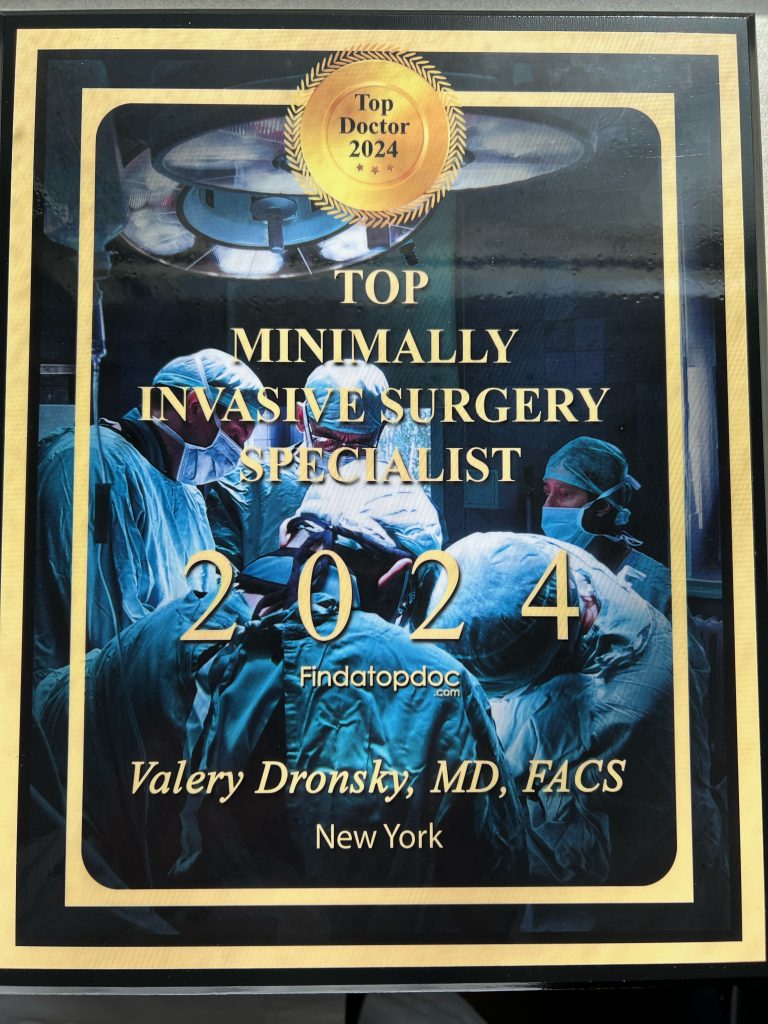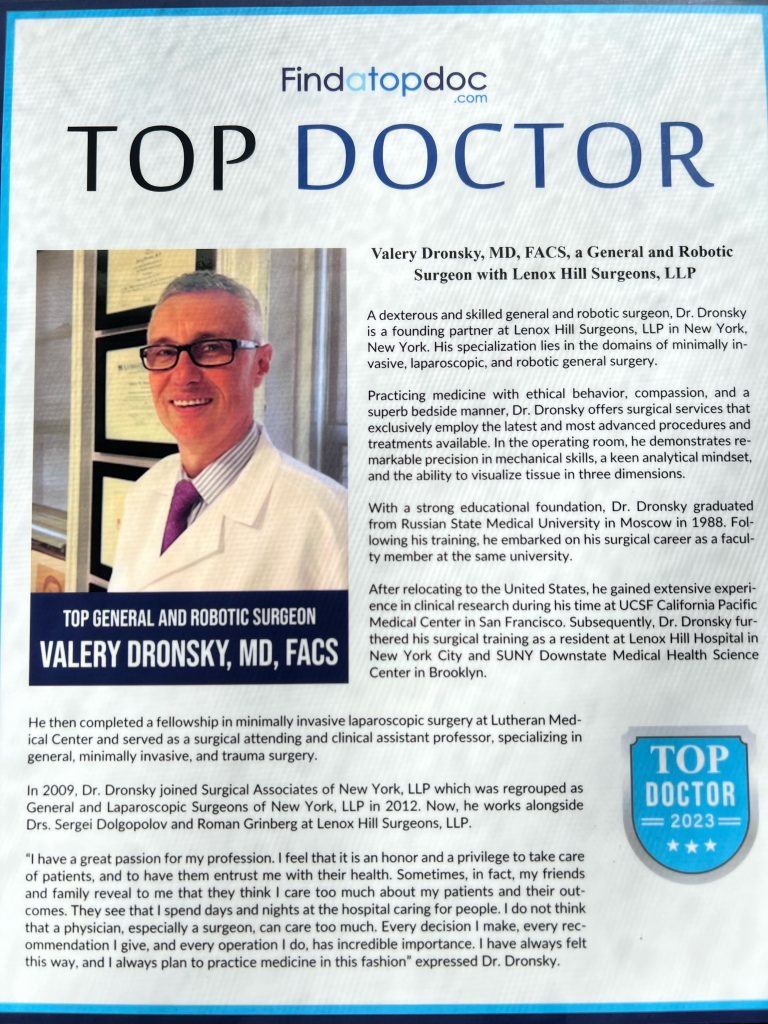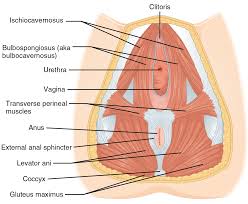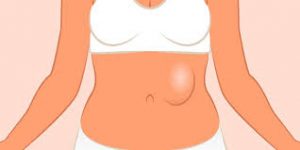CALL TODAY 646-846-1136 | EMAIL
Surgical Experts Dedicated to Improving Lives
At Lenox Hill Minimally Invasive Surgery PLLC, Dr. Valery Dronsky and his staff of medical professionals provide compassionate care with the highest ethical & professional standards. In our state of the art facility, we offer surgical services using only the most cutting edge and current procedures and treatments. We specialize in general surgery, including extensive experience in performing hernia repair surgery. Our expertise is in minimally invasive surgery and robotic surgery. Minimally invasive and robotic surgery often allow patients to experience easier recovery than traditional open surgery. They also allow for more precise and less traumatic surgery. When robotic and minimally invasive surgery is not an option, we are also skilled and experienced in traditional open surgical procedures.
Dr. Dronsky is an experienced and highly skilled surgeon having undergone extensive training in school, residency and fellowships. He practices medicine with ethical behavior, compassion and superb bedside manner. In the operating room he exhibits precision mechanical abilities, analytical thinking and the ability to visualize tissue in three dimensions. These innate and learned skills allow Dr. Dronsky to be one of the most dexterous and skilled professionals in New York City and the Country.
Call us: 646-846-1136
PATIENT TESTIMONIALS
Recent Awards
We are honored and deeply appreciative to have consistently received prestigious awards and recognition year after year, establishing us as one of New York’s foremost hospitals for a wide range of general surgeries, safety measures, specialized procedures, and overall excellence in healthcare. At Lenox Hill Minimally Invasive Surgery, our unwavering commitment lies in delivering exceptional care and unwavering support to our patients, guaranteeing their safety and successful recovery throughout their entire surgical experience.
Hospital Quality Awards
 America’s 50 Best Hospitals Award™ (2023, 2022)
America’s 50 Best Hospitals Award™ (2023, 2022)
Top 1% in the nation for providing the highest clinical quality year over year.

America’s 100 Best Hospitals Award™ (2021)
Top 2% in the nation for consistently delivering clinical quality year over year.

America’s 250 Best Hospitals Award™ (2023, 2022, 2021)
Top 5% in the nation for consistently delivering clinical quality.

Patient Safety Excellence Award™ (2023, 2022)
Top in the nation for providing excellence in patient safety by preventing infections, medical errors, and other preventable complications.
Specialty Clinical Quality Awards

America’s 100 Best Hospitals for Cardiac Care Award™ (2023, 2022, 2021, 2020, 2019)
Superior clinical outcomes in heart bypass surgery, coronary interventional procedures, heart attack treatment, heart failure treatment, and heart valve surgery.

America’s 100 Best Hospitals for Coronary Intervention Award™ (2023, 2022, 2021, 2020, 2019)
Superior clinical outcomes in coronary intervention procedures (angioplasty with stent).

America’s 100 Best Hospitals for Prostate Surgery Award™ (2023, 2022, 2021)
Superior clinical outcomes in prostate removal surgery and transurethral resection of the prostate.
Click to see all of our Healthgrades best doctors awards




Visit our main website at www.LenoxHillMinimallyInvasiveSurgery.com
Blog Posts are Below:
Tag Archives: Symptoms of a Hernia
What are the Symptoms of a Hernia?
 A hernia is a painful condition, so you no doubt want a quick answer to that question, “What are the Symptoms of a Hernia?” Unfortunately, this answer will greatly depend on your own assessment of yourself. In order to correctly identify a hernia, there are a few specific signs you should be looking for. If you are in intense pain and are seriously concerned, talk to your doctor. This article is solely intended to assist people dealing with minimal pain and are simply curious. It is not meant to be used in place of an accurate, medical evaluation.
A hernia is a painful condition, so you no doubt want a quick answer to that question, “What are the Symptoms of a Hernia?” Unfortunately, this answer will greatly depend on your own assessment of yourself. In order to correctly identify a hernia, there are a few specific signs you should be looking for. If you are in intense pain and are seriously concerned, talk to your doctor. This article is solely intended to assist people dealing with minimal pain and are simply curious. It is not meant to be used in place of an accurate, medical evaluation.
What is a Hernia?
In the abdominal cavity, the internal organs and structures are held in place by the abdominal muscles. Through typical use, the abdominal muscles, or abs, have a natural tension that can hold the contents of the abdominal cavity well. However, whether due to lack of use or overexertion, the integrity of the abdominal wall gives way and a small subsection of the intestines, or some other mass of tissue, protrudes out. This protrusion can potentially cause serious problems. For example, a hernia can lead to an intestinal blockage. This blockage is a serious issue and would require emergency medical attention.
The most important factor in the safety and recovery from a hernia is early identification. If closely monitored by a qualified medical professional from early on, the risk of hernia complication is greatly reduced.
Bulging
 One of the most commonly noticed signs of a hernia is bulging. Due to the very nature of how a hernia works, the affected area will bulge, creating a lump that is the hernia itself. Identifying this lump is one of the most important diagnostic tools available. The exact location of the herniated lump will vary depending on the diagnosis. In general, the hernia will be in the region after which it is named. An umbilical hernia, for instance, is located in the umbilical region at the belly button.
One of the most commonly noticed signs of a hernia is bulging. Due to the very nature of how a hernia works, the affected area will bulge, creating a lump that is the hernia itself. Identifying this lump is one of the most important diagnostic tools available. The exact location of the herniated lump will vary depending on the diagnosis. In general, the hernia will be in the region after which it is named. An umbilical hernia, for instance, is located in the umbilical region at the belly button.
A femoral hernia can be found in the inner thigh area. An inguinal hernia is a hernia in the groin. Surgical hernias can also develop at the site of a relatively recent surgical incision.
Swelling
Another diagnostic sign of a hernia is swelling. Although easily confused with the bulging mentioned above, swelling is a separate and distinct symptom altogether. Swelling involves more than just visible confirmation. Swelling of the affected area will also bring redness, warmth, and discomfort when touched.
Pain
The pain associated with a hernia is different than the pain caused by other means. When dealing with a hernia, the level of pain will vary depending on position and motion. For example, most people complain of greater pain when bending, lifting, or even coughing. The pain that hernias produce can vary from person a person, but typically is a dull ache in the region affected.
The difficulty with dealing with hernia pain is it the pain is not constant. Many times, people feel the intense pain that comes from exerting pressure on a hernia and schedule an appointment with a doctor. However, by the time they go to the doctor, it has been long enough that they forget the exact nature of the pain they’re dealing with this can make it difficult to relay necessary information to your doctor.
—
After reading this, do you think you have a hernia? Schedule an appointment with the best surgeons in NYC to develop a custom plan for dealing with your hernia.
Call Today: 646 -846-1136
———
References:
https://www.uofmhealth.org/health-library/aba5300
https://www.webmd.com/digestive-disorders/types-of-hernias#1
https://nyulangone.org/conditions/hernia-in-adults/types
https://www.mayoclinic.org/diseases-conditions/inguinal-hernia/symptoms-causes/syc-20351547















